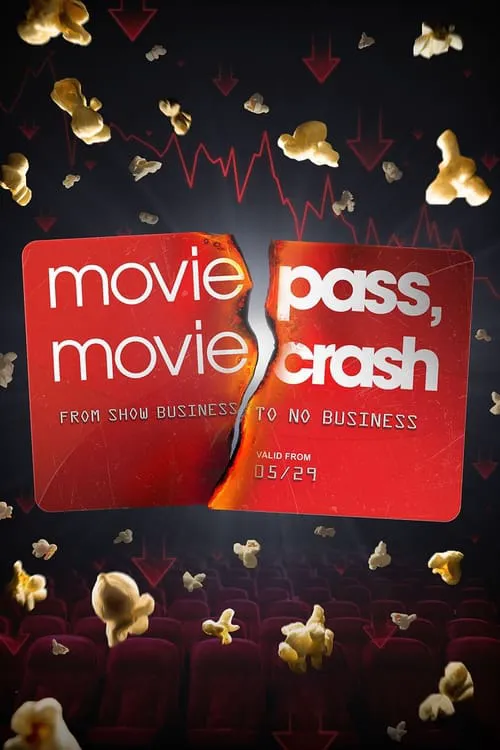MoviePass, MovieCrash

Plot
MoviePass was a revolutionary idea in the film industry. In 2010, Stacy Spikes, a former entrepreneur and filmmaker, conceptualized a subscription-based service that would give customers access to unlimited movie tickets for a monthly fee. The innovative startup quickly gained momentum and popularity, attracting investors and users from all over the world. The service was launched in 2011, with an initial focus on New York City. It allowed customers to watch up to one movie per day, any day of the week, at participating theaters. Users simply had to download the MoviePass app, order their tickets, and present their phones at the theater's box office. The service offered users an immense flexibility and freedom to watch all their favorite movies in theaters. MoviePass initially charged users $49 per month, which made cinema attendance accessible and affordable for many. However, in 2017, the company's parent company, Helios and Matheson Analytics (HMA), introduced a price drop to $9.95 per month. This drastic price cut led to a massive surge in subscribers, growing from 200,000 to over 3 million in just a few months. This exponential growth, however, came with a steep price. MoviePass' losses mounted as the company found itself struggling to break even. Despite raising millions in funding and selling off several business units, MoviePass' financial situation remained precarious. HMA stock price plummeted by over 70% due to MoviePass' continuous losses. The company continued to expand, signing deals with prominent theater chains such as AMC Theatres and Regal Cinemas. However, the agreements came with strict restrictions on ticket availability, forcing the company to implement algorithms and restrictions on its users to manage ticket allocations. This led to frustration and anger among subscribers who were no longer guaranteed tickets. As the business continued to implode, outside investors stepped in to provide support but ultimately failed to turn things around. MoviePass was sold to a new entity, and HMA laid off hundreds of employees. The company was eventually shut down in 2020, and the website went dark. Regulatory bodies began to examine MoviePass' practices, citing concerns over anticompetitive business tactics and false advertising. Subscribers filed lawsuits, accusing the company of misleading them with promises of unlimited movies. MoviePass claimed that the surge in users was due to market conditions and the rapidly shifting movie-going habits of consumers. The demise of MoviePass also raised questions over its business model, with critics pointing out the company's unsustainable pricing and lack of clarity on ticket availability. The film industry also expressed concerns over the service's aggressive expansion, pointing out that the sudden growth put pressure on theaters to provide the service's large user base with access to tickets. In retrospect, the meteoric rise and fall of MoviePass was a sobering reminder of the challenges faced by businesses seeking to disrupt entrenched industries. While the company's vision of making cinema attendance more accessible and affordable was admirable, its execution ultimately proved flawed. The story of MoviePass serves as a cautionary tale for entrepreneurs and investors looking to disrupt industries. In the age of social media and digital platforms, success is often fleeting and subject to shifting market conditions. Companies need to be adaptable, nimble, and honest with their users. Ultimately, MoviePass' spectacular failure should remind entrepreneurs to carefully evaluate their business models and pricing strategies before they grow and fail spectacularly.
Reviews
Recommendations




